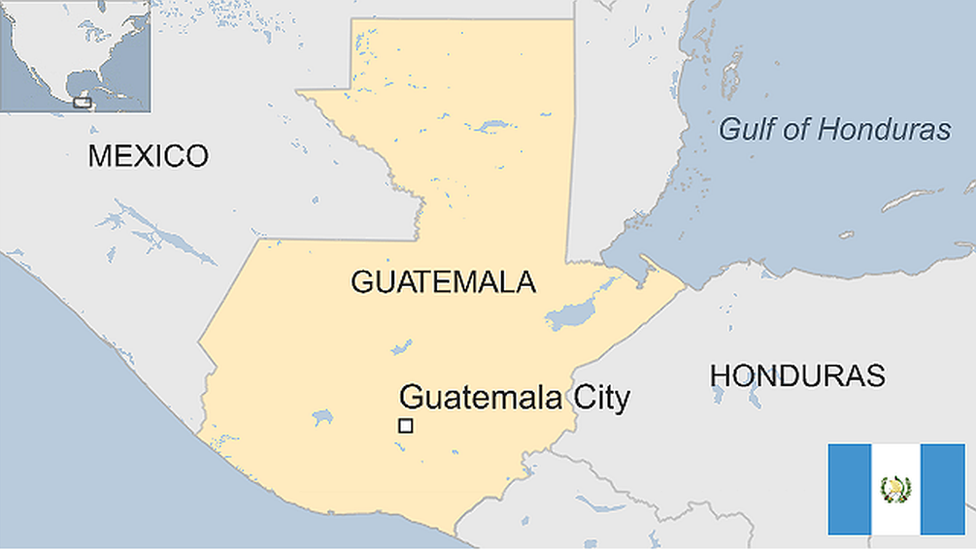Guatemala: Challenge to Bernardo Arévalo election seen as coup attempt
- Published
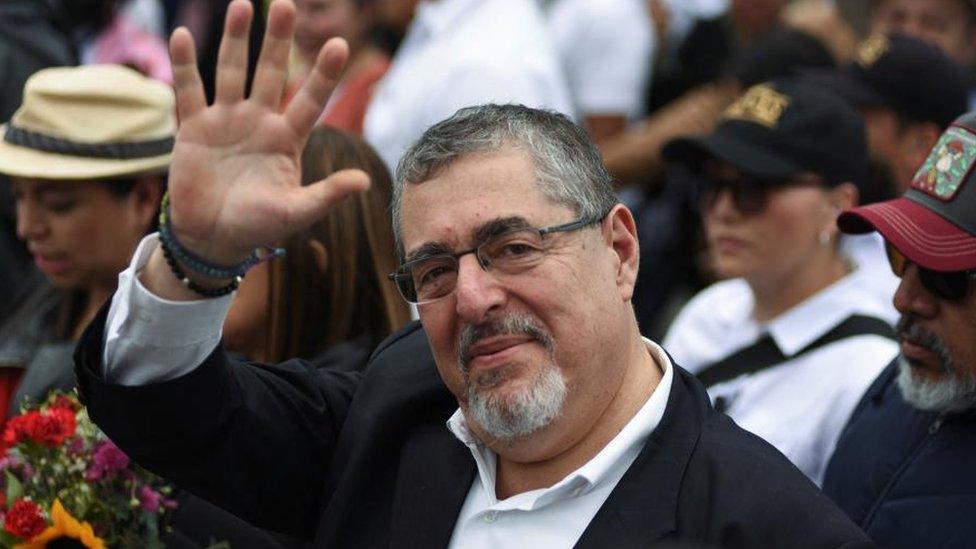
Bernardo Arévalo's election victory shocked Guatemala's political establishment
A legal challenge against Guatemala's election of an anti-corruption leader has been called an "attempted coup" by international organisations.
Bernardo Arévalo is due to take office as president in January - but on Friday, the country's prosecutor's office declared the result void.
The European Union and the Organization of American States condemned the move and called for a transition of power.
Mr Arévalo also described the prosecutor's actions as a coup attempt.
His victory in August was widely seen as a repudiation of Guatemala's political elite, which has been dogged by corruption allegations over many years.
The 65-year-old, who leads the party Movimiento Semilla (Seed Movement), won more than 60% of the vote, picking up mass support with his pledge to clean up governance in the Central American country.
But the election result has repeatedly been challenged by his political opponents, who have accused Mr Arévalo's party of vote-rigging and improperly registering its organisation with election authorities.
The allegations have been rejected by Mr Arévalo, international observers and his supporters - who in turn accuse prosecutors of being politically motivated.
Pro-democracy protesters have taken to the streets in recent months to support Mr Arévalo, and call for the attorney general and other officials to step down.
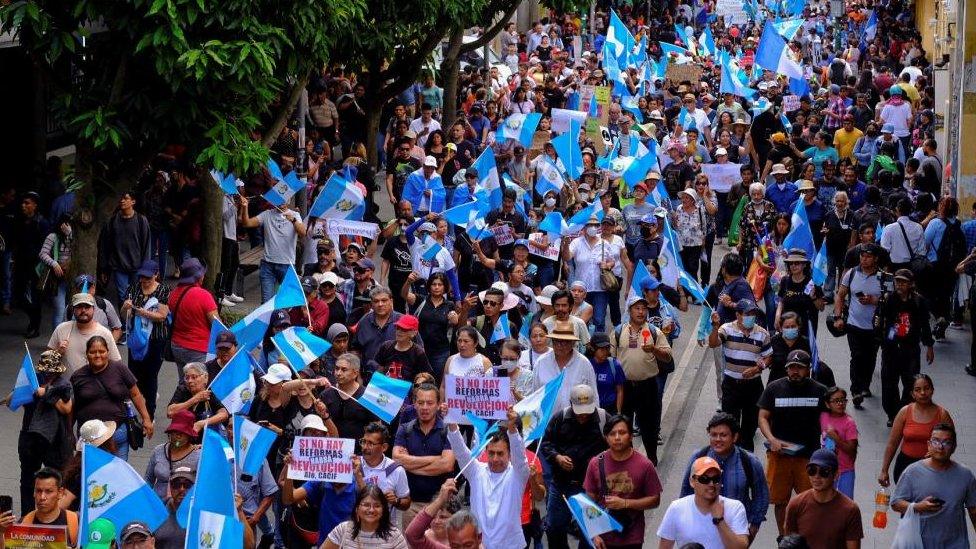
Supporters of Arévalo have held several protests in recent months
On Friday, prosecutor Leonor Morales said the August election result should be voided because the wrong voting forms were used during the first round of the presidential election in June.
Blanca Alfaro, the head of the Guatemalan electoral commission, responded by calling the result "unalterable" and insisted Mr Arévalo would be sworn in next month as planned.
Friday's intervention from the prosecutor's office comes after previous attempts to suspend the president-elect's party, a move widely seen as an attempt to stop him being sworn in.
EU foreign policy chief Josep Borrell called the election fraud allegations "spurious" and said Friday's announcement was "an attempt at a coup d'etat, spearheaded by politically motivated prosecutors".
He called for a democratic transition of power and announced "targeted restrictive measures against those responsible for these actions".
The Organization of American States said the prosecutor's intervention was "typical of dictatorships and not democracies".
Related topics
- Published10 October 2023
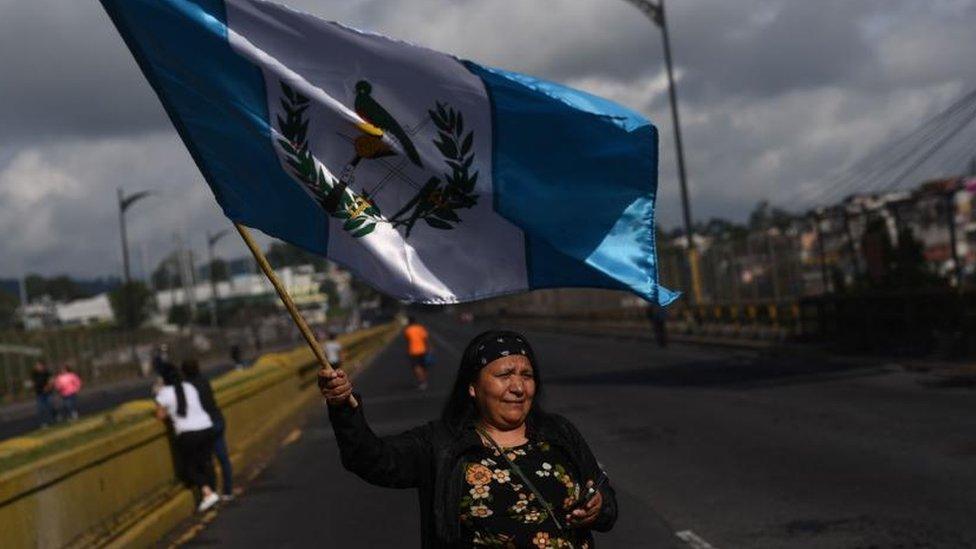
- Published7 September 2023
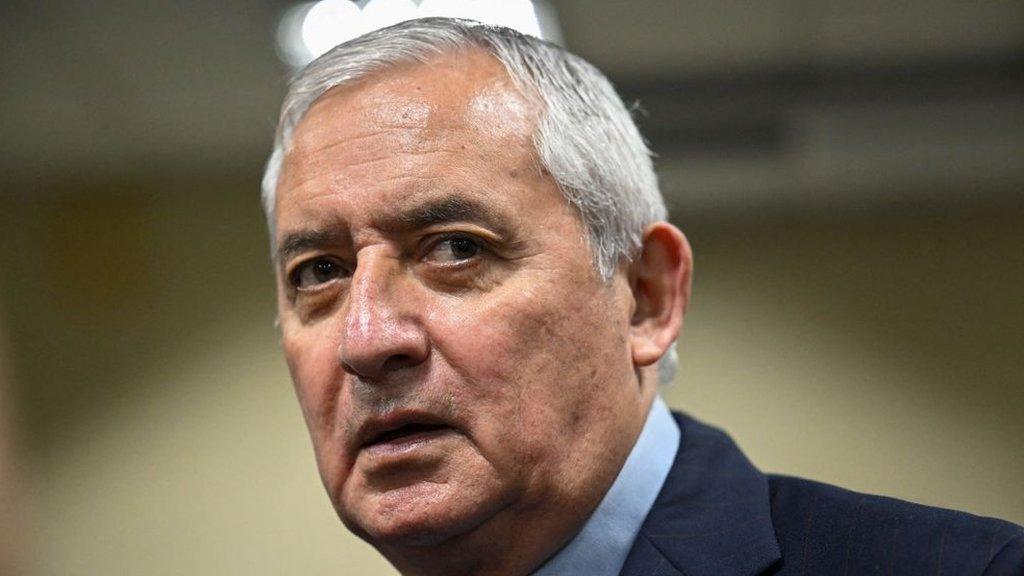
- Published15 January 2024
